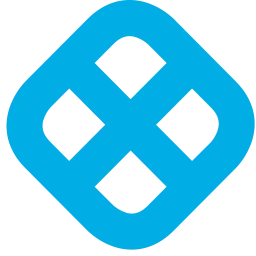Harness Blog
Featured blogs
Blog Library
Open Source Liquibase MongoDB Native Executor by Harness
Open source MongoDB executor for Liquibase Community. Run scripts natively, generate changelogs, and simplify MongoDB database DevOps workflows.
Top Continuous Integration Metrics Every Platform Engineering Leader Should Track
Track essential Continuous Integration metrics to boost developer productivity, reduce costs, and optimize pipelines. Learn how platform leaders drive results with CI metrics.
Unit Testing in CI/CD: How to Accelerate Builds Without Sacrificing Quality
Speed up your CI/CD builds with smarter unit testing strategies. Learn how AI-powered test optimization can give you faster feedback, lower costs, and better code quality.
Powering Harness Executions Page: Inside Our Flexible Filters Component
How we rebuilt a messy filters system in React using Context and inversion of control to create a scalable, reusable, and URL-synced architecture.
Agentic AI in DevOps: The Architect's Guide to Autonomous Infrastructure
We are moving from "Automated" to "Autonomous." A detailed architectural breakdown of how Agentic AI transforms DevOps, from RAG-based memory to Swarm Intelligence.
NoSQL Change Control for Compliance
Learn how CI/CD-driven NoSQL change control improves compliance, governance, and deployment reliability without slowing modern DevOps teams.
Closing the Year Strong: Harness Q4 2025 Continuous Delivery & GitOps Update
Q4 2025 CD update: safer deployments, improved artifacts, stronger IaC integrations, and scalable GitOps enhancements.
Backstage Alternatives: IDP Options for Engineering Leaders
Compare Backstage alternatives, from open source builds to commercial IDPs like Harness, and learn how to choose the right developer portal for your team.
Architecting Trust: The Blueprint for a "Golden Standard" Software Supply Chain
Move beyond bespoke CI/CD scripts. Learn how to architect a "Golden Standard" pipeline that enforces governance, accelerates security testing, and guarantees artifact integrity using a Zero Trust approach.
Qwiet AI Is Now Harness SAST and SCA
Harness SAST and SCA (formerly Qwiet AI) now available as pre-defined pipeline steps on the Harness platform. CPG, reachability, and AI guidance improve accuracy, help prioritize, and simplify remediation. Pipeline-native AST improves governance and scales security coverage across every pipeline.
Harness AI January 2026 Updates: Human-Aware SRE and Smarter API and Application Security
See the January 2026 Harness AI updates: Human-Aware SRE, AI-based API naming, and AppSec agents that automate incidents and security workflows.
Kubernetes Cost Traps: Fixing What Your Scheduler Won’t
Kubernetes isn’t expensive by default. Learn how inefficient scheduling, bin packing, and idle clusters quietly drive up cloud costs—and how to fix them.
How to Scale GitOps Without Hitting the Argo Ceiling
Discover the Argo ceiling—why GitOps with Argo CD struggles at scale and how a control plane restores visibility, governance, and speed.
Build vs Buy IaC: Choosing the Right IaCM Strategy
Build vs buy IaC? Compare custom pipelines to IaCM platforms. Learn which approach scales best for your team. Explore Harness IaCM now.
Overcoming the AI Velocity Paradox in Security
Is AI code generation outpacing your security? Learn strategies to close the gap and secure your SDLC against OWASP LLM threats with Harness AI Security.
Harness AutoStopping™ - FinOps Automation for Intelligent Cloud Cost Optimization
Eliminate idle cloud waste with FinOps automation. Harness Cloud AutoStopping™ cuts non-prod cloud costs up to 70%—automatically.
Announcing the Harness Human-Aware Change Agent
AI that understands human insight and connects it to the changes that drive real incidents.
Harness Sweeps Three Major Categories in DevOps Dozen Awards
Harness celebrates triple honors at the DevOps Dozen Awards, validating its AI-native platform vision with wins for Best End-to-End DevOps Platform, Best Platform Engineering Solution, and Industry Leader of the Year.
Applying Feature Flag Context To Your OpenTelemetry Spans
Learn how to enrich OpenTelemetry spans with feature flag context to better understand performance and behavior across flag treatments.
Recommended Experiments for Production Resilience in Harness Chaos Engineering
A practical guide to chaos engineering experiments across Kubernetes, AWS, Azure, and GCP for building resilient production systems.
Infrastructure Guardrails: Why Your IaC Stack Needs Them
Learn why infrastructure guardrails prevent costly errors in Terraform and OpenTofu deployments. Discover IaC best practices. Explore now.
Harness AI December 2025 Updates: Ship Faster Without Sacrificing Control
Discover how the latest Harness AI governance updates help platform, security, and developer teams ship faster with AI-generated OPA policies, compliant-by-default pipelines, real-time policy enforcement, full auditability, and RBAC-safe automation.
Simplify Feature Flag Management with Harness FME and OpenFeature
Harness FME now integrates with OpenFeature to standardize feature flag evaluation across languages, services, and environments.
Harness Dynamic Pipelines: Complete Adaptability, Rock Solid Governance
Unlock the power of programmable pipelines with Harness Dynamic Pipelines. Move beyond static configuration to true headless CI/CD by generating and executing workflows on the fly via API—ideal for IDPS and AI-driven orchestration.
Building the Next Phase of Harness’s AI Engineering Organization in India
Harness expanded its India organization by 75% in 2025 and is investing in its Bangalore-based AI R&D center to support plans to grow to 1,000 employees, strengthening AI innovation across the full software delivery lifecycle.
CTO Predictions for 2026: Special ShipTalk Episode with Nick Durkin
CTO predictions for 2026 on AI, DevSecOps, and software delivery. Why AI exposes broken pipelines and how teams scale safely.
Theory to Turbulence: Building a Developer-Friendly E2E Testing Framework for Chaos Platform
Learn how we built a scalable E2E chaos fault validation framework that cuts setup time by 80% while improving reliability and developer experience.
How Enterprises Modernize and Migrate to the Cloud Safely with Harness Automation
Discover how enterprises modernize and migrate to the cloud safely using Harness automation. Learn best practices for IaC, CI/CD modernization, governance, and cost control in large-scale cloud migrations.
Knowledge Graph + RAG: A Unified Approach to DevOps Intelligence
Discover why RAG alone can’t handle ownership, dependencies, and governance in modern DevOps, and how Harness’s Software Delivery Knowledge Graph and semantic layer combine with RAG to deliver faster pipelines, safer automation, and dramatically faster incident resolution.
Harness Database DevOps Now Supports Google AlloyDB
Harness Database DevOps adds AlloyDB support, enabling secure, automated, and governed PostgreSQL database delivery at enterprise scale.
The Modern Software Delivery Platform®
Need more info? Contact Sales
.png)












